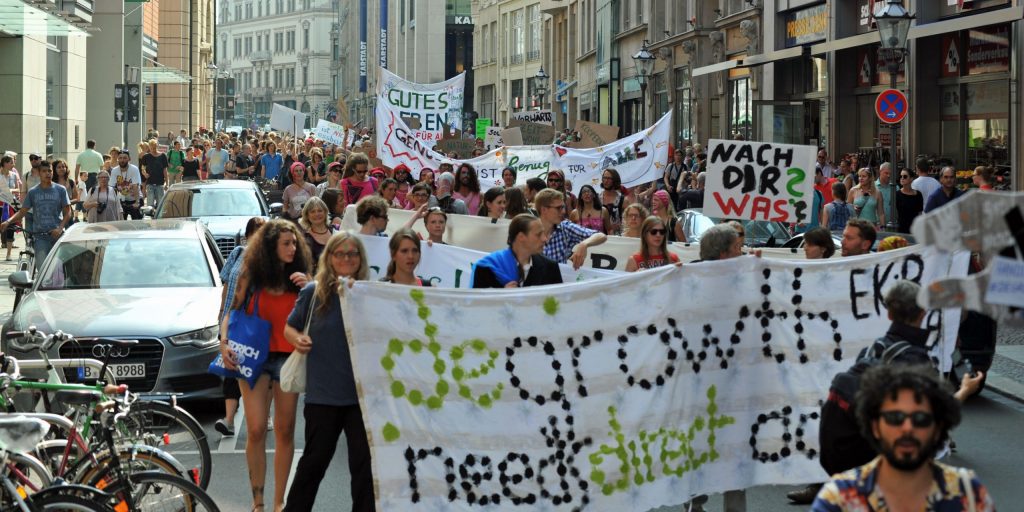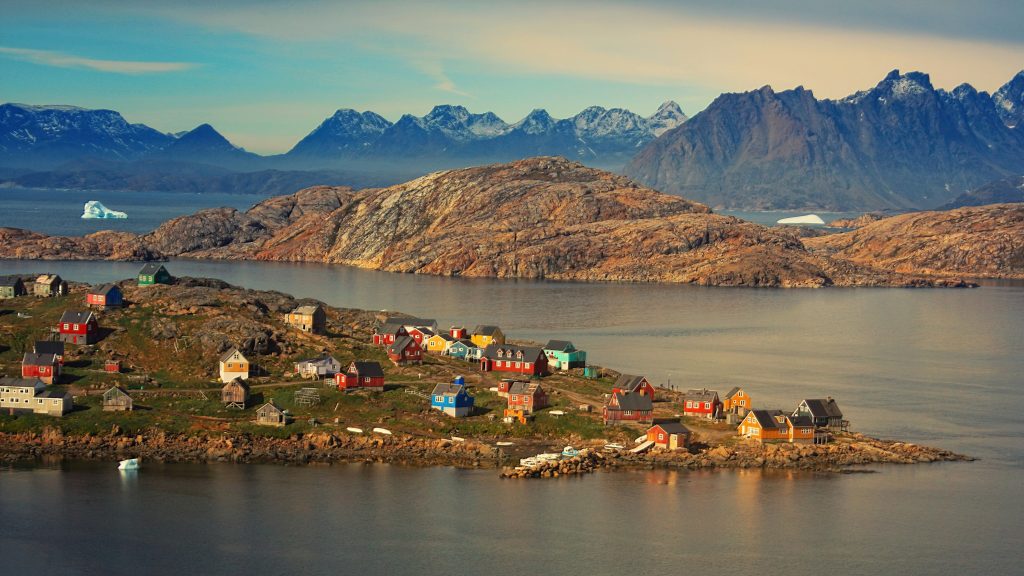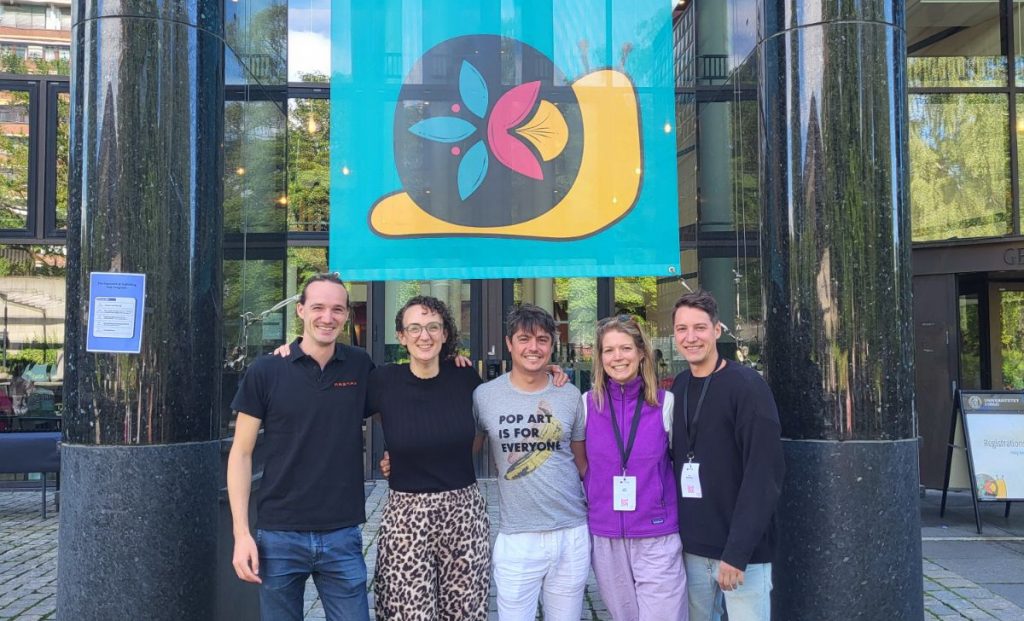A staggering 3,000 participants and volunteers gathered last week in the German city of Leipzig for the fourth International Conference on Degrowth for Ecological Sustainability and Social Equity, which sent a strong message to the EU to move away from economic growth at all costs and towards more responsible environmental stewardship.
From 2 to 6 September, they followed a rich and diverse programme which ranged from scientific talks and panel debates through practical workshops to music and art performances. Under the common theme of how to ‘degrow’ in a way that increases human well-being and enhances ecological conditions and equality on our planet, the events covered topics in all areas of society. They included discussions on the transformation of the economic, financial, and political system, as well as questions of how to change values and behaviour. Despite the challenges ahead, a general enthusiasm could be felt in the lively discussions that lasted from the mornings until late in the evenings.
What has made degrowth suddenly so popular? How was this concept able to bring together scientists, activists, and interested citizens from such a variety of movements, working on topics as varied as the environment, social justice, feminism, global justice and well-being?
What unites all these groups is the insight that we need to escape from the ‘growth fetish’ of our societies if we want to tackle today’s urgent social and environmental problems at their root. A growing body of research from various disciplines shows that our focus on Gross Domestic Product (GDP) growth is the major driver behind the long-term destruction of good conditions for human life on Earth.
A focus on GDP growth not only leads us to overconsume natural resources and pollute the atmosphere, impairing future generations’ ability to live a good life. Rising inequalities of wealth, health and opportunity also undermine the social basis of society and harm the well-being of many people today – both in the global South and North.
This means that we need to shift our focus away from GDP growth and towards outcomes that really provide us with the capabilities to live enjoyable lives. Instead of focusing on the means – economic growth – we have to improve the aim: a sustainable livelihood for everyone on this planet. A large-scale research project in Scotland has shown that people primarily value good housing and health, a clean and healthy environment, having satisfying work and good relationships with family and friends. Other studies indicate a strong influence of society’s level of equality on people’s quality of life and a strong link of resource consumption to environmental damage and social injustices. Measuring and striving to improve these factors gives much better guidance for policies that truly enhance people’s lives.
The need to use better indicators of societal progress has been acknowledged in many governmental reports. Most prominently, the Stiglitz-Sen-Fitoussi Commission in France, the parliamentary Commission on Growth, Well-being and Quality of Life in Germany, and the OECD Better Life initiative all concluded that GDP is insufficient and tried to develop better measures that include environmental and social aspects. Even the EU aspires to this goal with its Beyond GDP initiative to develop indicators that are “more inclusive of environmental and social aspects of progress”. However, in practice not much has changed. As the growth-focus of the new European Commission shows, the attention of most European politicians and policies is still dominantly directed at GDP.
This is why the EU needs to revive and massively strengthen its Beyond GDP initiative. Such a move could not only enhance EU policies, but has the potential to bring it closer to its citizens and improve its legitimacy in times of increasing Euroscepticism. The initiative has to go beyond general recommendations towards real changes in the way EU policies are made. One way of doing this is to include important environmental and social indicators in the policy impact assessment. But it is not enough to only measure the effect on for example social inequality, resource consumption and public health. These indicators have to be given sufficient weight. They have to powerfully influence policies if we truly want to make the EU a promoter of well-being for all.







